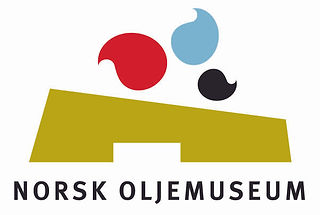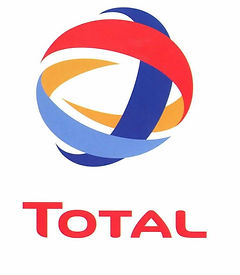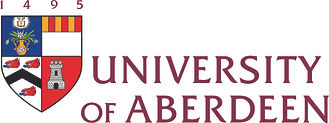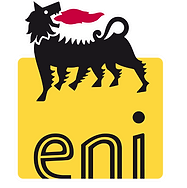Aberdeen Maritime Museum tells the story of the city's long relationship with the Sea. This award-winning museum is located on the historic Shiprow and incorporates Provost Ross's House, which was built in 1593. The Maritime Museum houses a unique collection covering shipbuilding, fast sailing ships, fishing and port history. It is also the only place in the UK where you can see displays on the North Sea oil and gas industry. Aberdeen Maritime Museum offers visitors a spectacular viewpoint over the busy harbour.
Eogan referent for the institution: Jason Finch
The Capturing the Energy project was established in 2005 to encourage companies operating in the UK offshore oil and gas industry to make provision for the preservation of their most significant records, so they remain accessible for educational purposes and public research, currently and for future generations. Capturing the Energy has the support of the UK Government, and operators are encouraged to work with the project to comply with the Department for Energy and Climate Change’s Decommissioning Guidelines. The University of Aberdeen is the hub of the network supporting this programme, and records collected through the project are deposited in the Oil & Gas Archive in the University’s Special Collections Centre. The University will also act as a virtual hub for information and resources relating to the industry held elsewhere. Partners in the project represent the industry and the heritage sector, and include Aberdeen City Council, BP, Business Archive Council (Scotland), CNR International, Conoco Phillips, DECC, Historic Scotland, Norwegian Petroleum Museum, Norwegian State Archives, Oil & Gas UK, OPITO, Scottish Enterprise Grampian, Shell and TOTAL E&P UK
Eogan referent for the institution: Siobhán Convery
Capturing the Energy
email: info@capturing-the-energy.org.uk
webpage: http://www.capturing-the-energy.org.uk/
Frigg UK documentation project
The Norwegian Petroleum Museum exhibits explain how oil and gas are created, discovered and produced, and what they are used for. The museum also provides information about technological advances and the way petroleum influences Norwegian society. Original objects, models, films and interactive exhibits illustrate everything from everyday life offshore to technology and dramatic incidents
Eogan referent for the institution: Gunleiv Hadland
The Total Historical Archives Department is part of the Records Management and Archives Department. Founded in the early 1980s, the Historical Archives Department’s main missions include the following: collecting and indexing of documents, completing inventories and catalogues and making documents accessible to Total collaborators and external scholars. The historical archives amount to about 3.5 out of a hundred linear kilometers of documents. They consist of written documents, photographs and objects, covering all the company’s activities since its creation in the early 20th century. Under the direction of the Head of the Archives Department, one collaborator is assigned full-time to managing the historical records
Eogan referent for the institution: Clotilde Cucchi-Vignier
email: speclib@abdn.ac.uk
webpage: www.abdn.ac.uk/library/about/special/
blog: http://specialcollectionslearning.wordpress.com
facebook: www.facebook.com/SpecialCollectionsCentreUniversityOfAberdeen
twitter: @scc_aberdeen
The University of Aberdeen is an ancient university in the North East of Scotland, founded in 1495. Located in the oil capital of Europe, energy research and education is a particular strength of the University. The University also works to ensure the history of the energy industry is preserved through its involvement in the Capturing the Energy initiative. The University’s Special Collections Centre is home to the University of Aberdeen’s historic collections of books, manuscripts, archives and photographs, and is now home to the Oil & Gas Archive, which houses records collected as part of the 'Capturing the Energy' project. Special Collections will also act as a virtual hub for information and resources relating to the industry held elsewhere. Based in the Sir Duncan Rice Library, the collections comprise over 200,000 rare printed books as well as 5,000 irreplaceable archival collections, with material dating as far back as the 3rd century BC. The collections cover all aspects of the history and culture of the University, the City of Aberdeen, the region and the relationship they enjoy with the wider world
Eogan referent for the institution: Siobhán Convery
Eni is an Italian multinational oil and gas company headquartered in Rome and founded in 1953 from an existing company, Agip, created in 1926 with the aim to explore for oilfields, acquire and commercialize oil and derivatives. On March 1953 Enrico Mattei was the first Eni’s Chairman. A brilliant networker, Mattei assembled a gifted team of actors on the international business stage, making Italy be more and more integrated within the world energy market. The name "ENI" was initially the acronym of "Ente Nazionale Idrocarburi" (national hydrocarbons authority). Through the years after its foundation however, it operated in a large number of fields including contracting, nuclear power, energy, mining, chemicals and plastics, refining/extraction and distribution machinery, hospitality industry and even textile industry and news.
Eogan referent for the institution: Mattia Voltaggio
The BP Archive holds the historical records of BP plc and its predecessor Companies (Anglo-Persian/Iranian Oil Companies; the British Petroleum Company). We also hold the records of the former Burmah Oil Company and C C Wakefield & Co/Castrol Limited. In addition we hold the Kuwait Oil Company Archive and also that of the Iraw Petroleum Company (special access with approval of the Abu Dhabi Petroleum Company). The records are available for third party research up to 1976 (with some exceptions) and more recent for items intended for the public domain.
Eogan referent for the institution: Peter Housego
The Maritime Museum Rotterdam is the oldest maritime museum in the Netherlands and one of the leading maritime museums in the world. It keeps a large collection on the history of Dutch shipping, shipbuilding, offshore energy, the port of Rotterdam and many related topics. Drawn from this collection exhibitions are organized yearly to educate and entertain the visitors on these topics.
Eogan referent for the institution: Wouter Heijveld
Fondazione Aem – Gruppo A2A was established in 2007 in order to preserve the historical heritage of Aem (the old Municipal Electric Company of Milan), one of most important energy’s company in Italy, instituted in 1910 by the Municipality of Milan. Beyond the promotion of his historical heritage, AEM Foundation support the scientific research for energy sustainability and recycling, cultural and charity projects, expecially in Lombardy area.
In 1981 Aem assumed by Montedison the gas service in Milan and part of his historical heritage (for example: the great Gas Factory in Bovisa and his photographic archive). From 2008, after the fusion with Asm, was established the A2A Group, a multi-utility involved in electric production, waste collection and gas service.
Eogan referent for the institution: Fabrizio Trisoglio
The Expatriate Archive Centre (EAC) grew from an idea suggested by a group of Shell wives living in the Netherlands in 1992, when the Royal Dutch Petroleum Company was preparing to commemorate its centenary. They wanted to recognise the contributions and worth of expatriate families. Under the guidance of Judy Moody-Stuart and other members of the Shell Ladies Project, hundreds of handwritten stories and reminiscences came pouring in from around the world in different languages, the earliest dated 1928. As a result, two anthologies were published in 1993 and 1996: Life on the Move and Life Now.
By 2001 the original contributions had been carefully filed, but – just like the lives of the families contained within the files – remained in limbo. It was this valuable collection of original writings which was the inspiration for Judy Moody-Stuart, Glenda Lewin and Dewey White to create the Outpost Family Archive Centre in 2003, originally as part of the Shell support organisation Outpost in The Hague. When the foundation Outpost went through structural changes and morphed into Shell’s Global Outpost Services, it became clear that the archive should become separate. The original foundation was revised, reduced and renamed to deal solely with the preservation and expansion of the growing collection of expatriate writings. The EAC was formally launched in April 2008 as an independent foundation.
In 2008, a new book was published – The Source Book, An Expatriate Social History, 1927-2007, Shell Lives Unshelved. Containing material from over 250 contributors, this anthology was intended as a way to share excerpts from the growing collection of the EAC.
The original EAC collection describes lives of Shell employees and their families. Since 2008 the EAC collects private archives from expatriates - as well as repatriates and TCKs - of any nationality, residence, regardless of their employment or lack of it.
Eogan referent for the institution: Kristine Racina
Vår Energi is the largest, independent exploration and production (E&P) company on the Norwegian continental shelf (NCS) with an average production of more than 169,000 barrels of oil equivalent per day (boepd) in 2018, targeting 250,000 boepd in the early 2020’s.
We operate oil and gas production across the entire shelf, with fields in the Barents Sea, the Norwegian Sea and the North Sea. The company is committed to further explore, develop and produce resources and reserves from our high-quality portfolio of licenses. Our 800 employees work at our offshore fields and onshore office locations; headquarters at Forus in the Stavanger region, and branch offices in Hammerfest and Oslo.
A business plan for the company is jointly developed and sanctioned by the shareholders; the integrated energy company Eni (69.6 percent) and Norway based leading private equity investor HitecVision (30.4 percent).
Vår Energi represents a new generation of operators on the NCS. The company has the capacity and competency to deliver ambitious growth plans, while also providing a safe and sustainable working environment, aiming to take industry leadership in continuously improving our carbon footprint and introducing low carbon technologies.
NUCLEUS, the Nuclear and Caithness Archives, is a new purpose-built facility opened in 2017, owned by the Nuclear Decommissioning Authority. It has won numerous prestigious architectural awards. Historical records of the UK civil nuclear industry from the 1940s to the present day are being accessioned, a programme that is expected to take around six years. New records will continue to be received for 100+yrs. The facility operates as a long-term records management facility and archive, with Place of Deposit status awarded by The National Archives (TNA) in Kew, England. Nucleus is located in Caithness in the far northeast of Scotland, on the famous North Coast 500 Route, and also houses the Caithness Archive, whose records date back to 1469. Together, the collections will fill over 50 linear kilometres of shelving.











%20logo.jpg)

